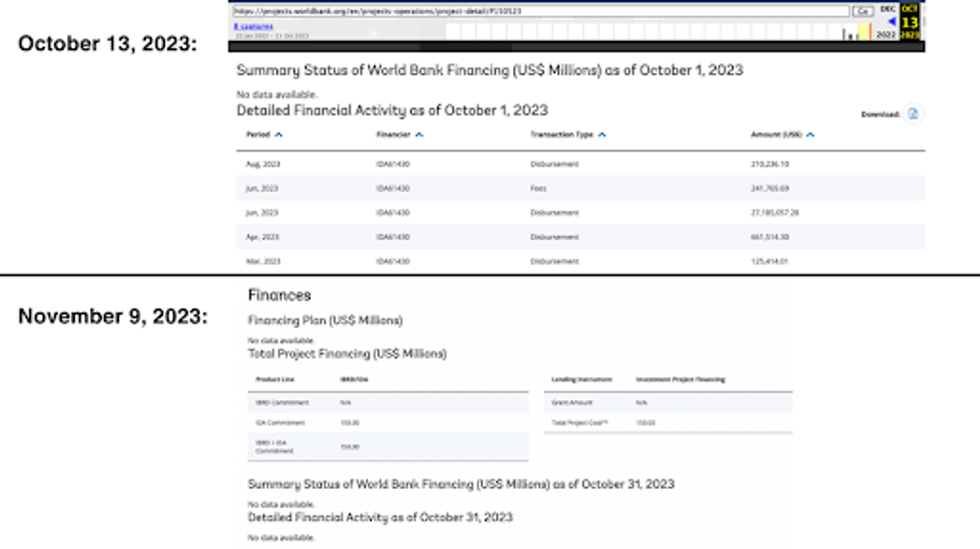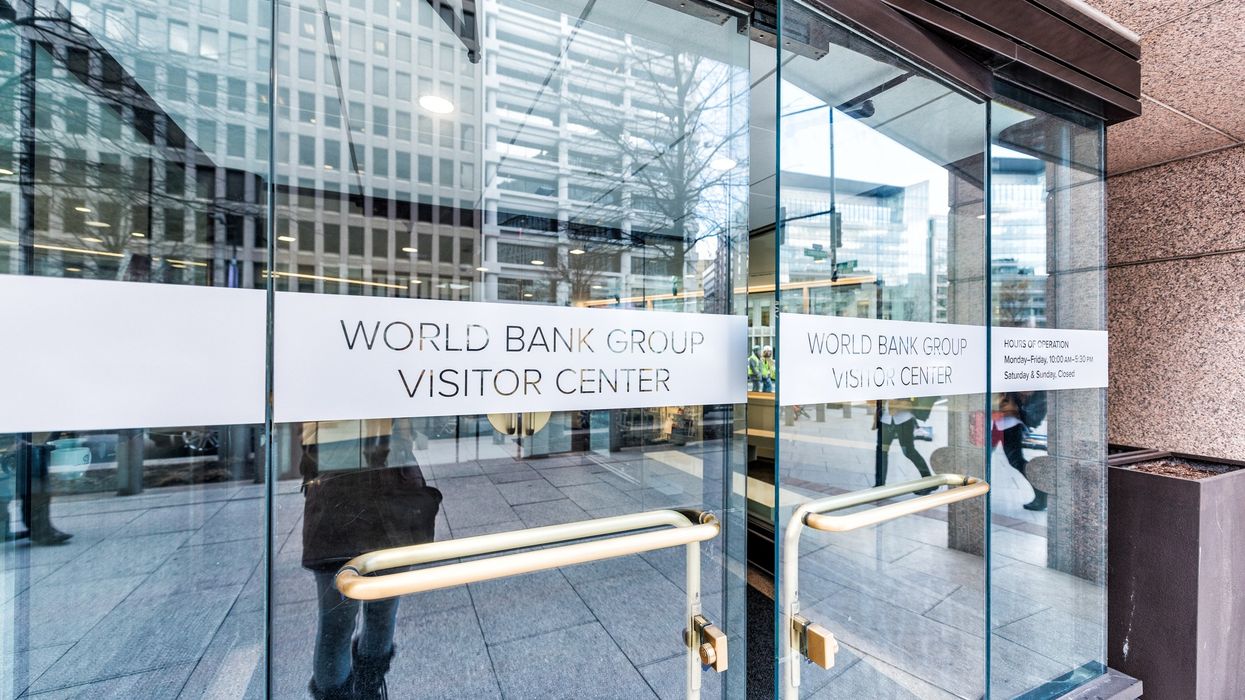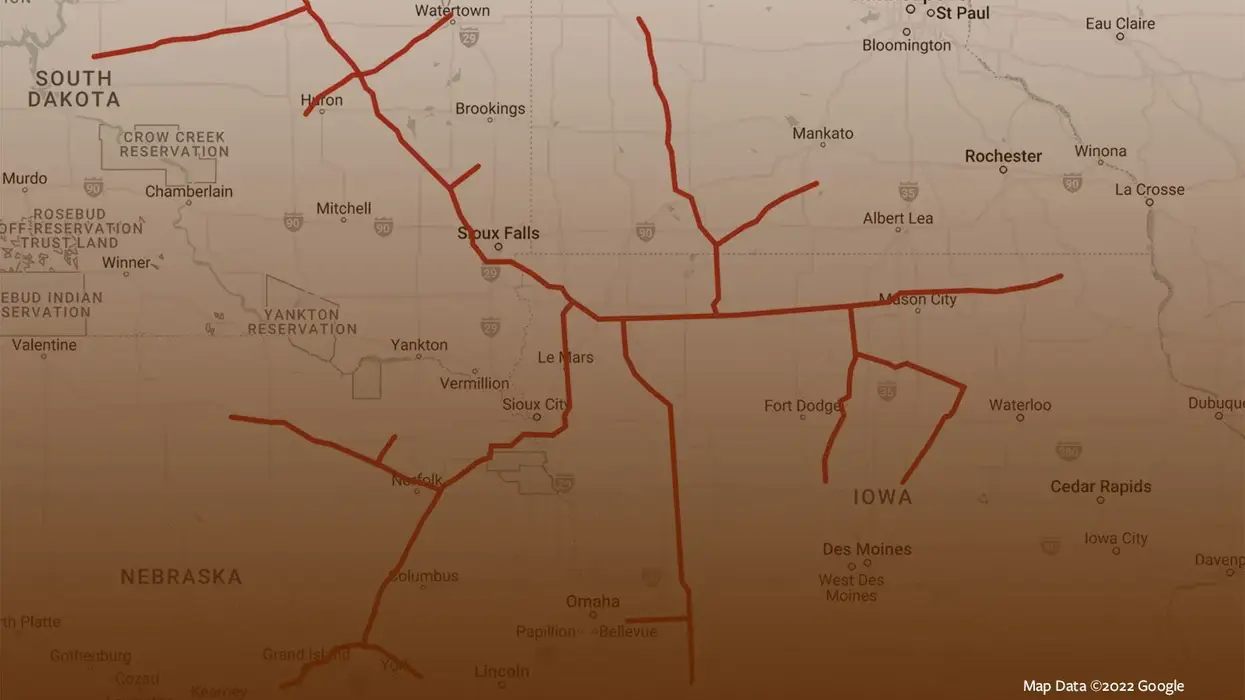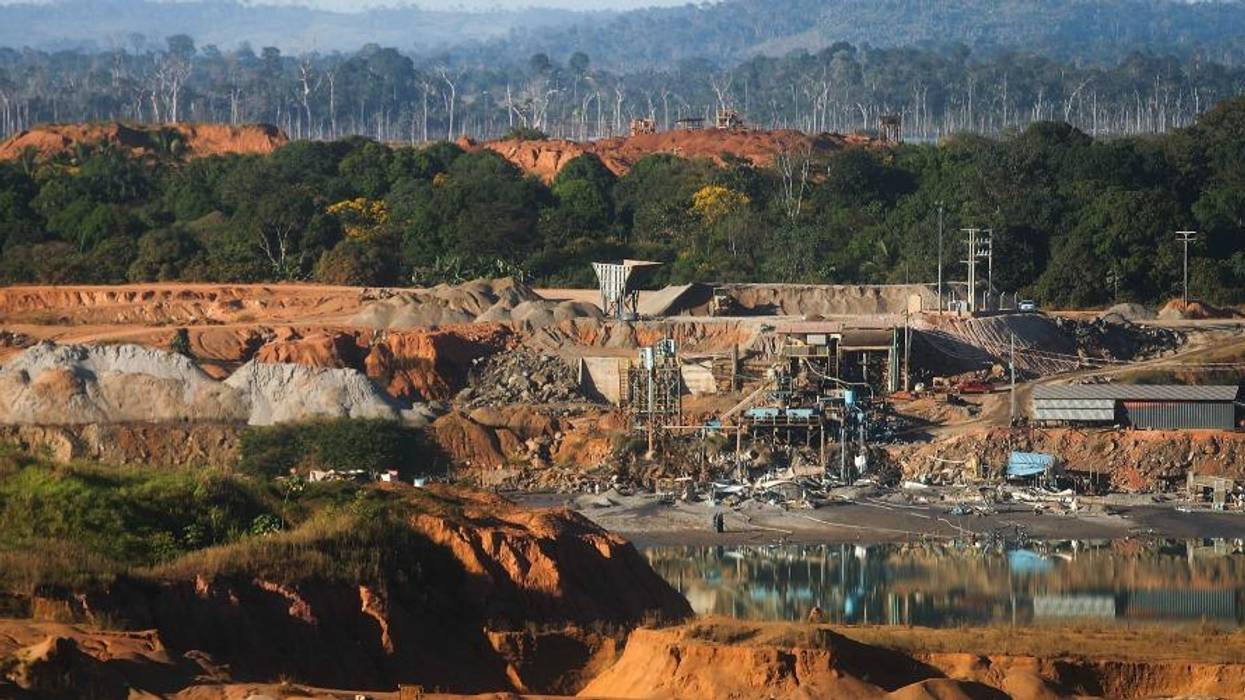The World Bank Must Stop Funding Human Rights Abuses in Tanzania
The bank’s funding for Tanzania National Parks Authority (TANAPA) has enabled a paramilitary force of rangers who have been involved in shocking violence, including torture, rape, and murder.
December 10 marks 75 years since the Universal Declaration of Human Rights was adopted by the United Nations General Assembly. Today, instead of protecting these fundamental rights and fulfilling their obligations, governments and international institutions like the World Bank continue to abdicate their responsibility with impunity.
Tanzanian villagers in Mbarali District currently face the devastating impact of the Bank’s $150 million Resilient Natural Resource Management for Tourism and Growth (REGROW) project. Since 2017, the project has supported the Tanzanian government’s plans to develop the less visited tourist destinations in the Southern Circuit of the country. This includes Ruaha National Park (RUNAPA), which is slated to double in size from 1 to over 2 million hectares.
The Oakland Institute’s report Unaccountable & Complicit exposed how this expansion has triggered the impending eviction of tens of thousands of people from their legally registered villages, without their Free, Prior, and Informed Consent or resettlement plans. The bank’s funding for Tanzania National Parks Authority (TANAPA) has enabled a paramilitary force of rangers who have been involved in shocking violence, including torture, rape, and murder.
In recent years, the bank has taken swift action to sever funding to several countries, including Uganda, after the passage of a draconian anti-LGBTQ law and Russia, after its invasion of Ukraine. That it continues to finance the Tanzanian government is a shameful double standard.
The uncertainty and fear from the eviction announcements has put the lives of villagers on hold. Fields sit unplanted. New power grid connections abruptly ended in 2022. Construction of schools and the number of students advancing from primary to secondary school has plummeted. Rangers continue to illegally seize thousands of cattle to decimate livelihoods and force people to move. Any resistance is met with brutal force.
Despite these hardships and the government’s notorious track record of trampling on the rights of Indigenous communities to boost safari tourism, the impacted villagers are waging a struggle to protect their lands and lives. In February, 852 smallholder farmers from Mbeya filed a case to stop the government’s plans to evict them from their land at the High Court of Tanzania at Mbeya. Weary of the government’s disregard for the rule of law, villagers turned to the World Bank’s Inspection Panel (IP), an independent complaints mechanism, to seek justice. The IP works to promote accountability and “give affected people a greater voice in activities supported by the World Bank that affect their rights and interests, and foster redress when warranted.”
Navigating the IP Process
In June 2023, two villagers submitted a complaint to the IP on behalf of the community, detailing the human rights abuses and violations of the bank’s safeguards that resulted from the REGROW project. The complaint described how the planned evictions, incidents of violence, and cattle seizures have impacted several Indigenous groups, including the Maasai, Sukuma, and Datoga pastoralists. Given serious fear of retribution for speaking out, the requestors remained anonymous and nominated the Oakland Institute as their adviser through the process. One villager explained, “We do fear because when you become identified [by the government], that will be the end of your life.”
After the request for inspection was officially registered in July, the IP traveled to Mbarali District to visit several villages and meet with impacted community members in August. Members of the Panel heard from the women who had been beaten with hot bush knives by TANAPA rangers earlier this year. Others told harrowing accounts of their loved ones disappeared or killed by rangers. The IP heard directly from a Sukuma pastoralist who was tortured by rangers during an illegal cattle seizure. They saw the scars left on villagers and included direct testimonies in their report—a rare occurrence that speaks to the severity of what they witnessed.
The visit of the IP raised the villagers’ hope. They shared in a letter to the bank: “For the first time in years, we hoped the disappearances of our sons and brothers and violence against our daughters and sisters would end and the rangers responsible be brought to justice. After these meetings [with the IP], we thought our nightmare would soon be over.”
Delays Allow Abuses to Continue
This hope, however, fades as the lengthy investigation process drags on amidst the bank’s continued financing of the project.
The IP prepared a recommendation to the bank’s Board of Executive Directors to pursue a full investigation on September 19. The report called for “an investigation into the bank’s review and due diligence of the capacity and processes of one of the project’s lead implementing agencies, i.e. TANAPA, and whether risks to communities were identified in project documents, appropriate mitigation measures put in place, and the bank’s supervision of the project’s implementing agencies.”
The board’s approval of this decision was expected to be made public on October 4 but was postponed at the last minute to October 25. On the day of the new deadline, the decision was again delayed as one board member called for an additional discussion on the eligibility report. On November 15, the board finally accepted the panel’s recommendation for investigation. Once the investigation begins, it must be submitted to the bank’s management within six months, which then has six weeks to provide a response. Only then will the board hold a discussion to determine the action to be taken.
While disbursements continue amid the delayed investigation, bank-funded TANAPA rangers continue to terrorize the communities with impunity.
In the six months since the complaint was filed, project funding has continued. The inability of the IP to freeze funding allows a project to move ahead with business as usual even after complaints of abhorrent abuses. The Bank has already disbursed $92 million out of the $150 project total, with approximately $28 million disbursed since the complaint was filed. The bank can continue to expedite funding until the full $150 million has been disbursed to the Tanzanian government—effectively undermining any impact the IP investigation could have. When this concern was raised with the World Bank, a self-proclaimed “global leader in transparency,” the institution responded by scrubbing the financial disbursement information from the project website.

Screenshots of the REGROW project page showing removal of disbursement information.
While disbursements continue amid the delayed investigation, bank-funded TANAPA rangers continue to terrorize the communities with impunity. On the morning of October 28, five herders were at their camp outside of Mwanawala, a village visited by the IP during their visit. Suddenly, the group’s cattle were scattered by a helicopter making a low pass. TANAPA rangers disembarked and began seizing the herd that had been driven into RUNAPA. The herders resisted and, in the commotion that ensued, 21-year-old Zengo Dotto was shot and killed by a ranger. The young herder died trying to protect his family’s cattle, vital to their livelihoods. His parents refused to claim his body from the morgue until the rangers are brought to justice for the murder of their son.
Justice Delayed Is Justice Denied
The World Bank currently has 23 active projects in Tanzania totaling over $8.3 billion in loans and grants. Along with the U.S. government, its main financer, the bank holds enormous influence over the government and could use this leverage to stop the human rights crisis facing communities near RUNAPA and across the country. In recent years, the bank has taken swift action to sever funding to several countries, including Uganda, after the passage of a draconian anti-LGBTQ law and Russia, after its invasion of Ukraine. That it continues to finance the Tanzanian government is a shameful double standard. In addition to the reported abuses around RUNAPA, the Tanzanian government has been internationally condemned for its forced evictions and cruel livelihood restrictions imposed against the Maasai in the Ngorongoro Conservation Area (NCA) and Loliondo.
At a recent event celebrating the IP’s 30-year history, Chair Ramanie Kunanayagam explicitly recognized: “We are very aware that justice delayed is justice denied, so we work very carefully to meet our timelines.” In this case, even if the IP meets its timelines, all the funds may be disbursed before the investigation can have a tangible impact on the lives of the villagers. The Tanzanian government and TANAPA see that regardless of its actions, money will continue to flow from the World Bank. How many more villagers must die before the bank ends its complicity in these atrocities?
Impacted villagers did not mince their words in their letter to the bank. “In desperation, we are writing to petition you, the executive directors of the World Bank, to please stop financing the REGROW project and answer our calls for justice. We are tired of living in constant fear for our lives.”
In order to be truly accountable, the World Bank must immediately stop funding the project. This is the only way to make it clear to the Tanzanian government that its human rights abuses will not be tolerated any longer.


